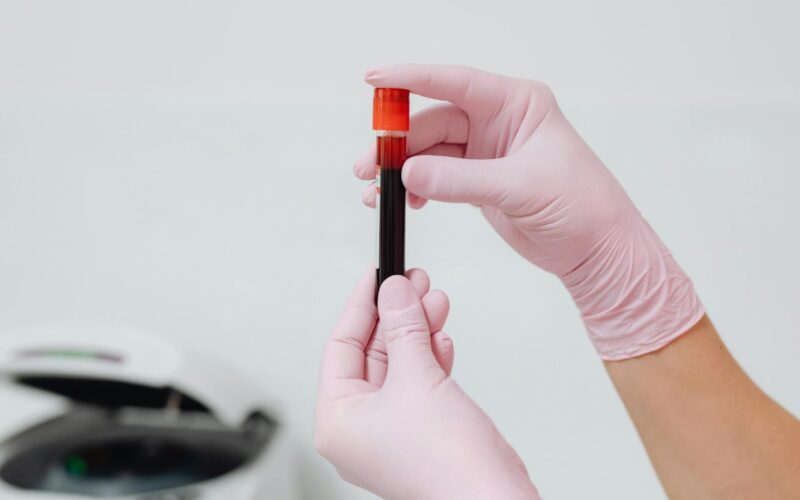When you want to understand your health properly, guessing isn’t enough. You might feel tired, run-down, or perfectly fine — but without checking what’s happening inside your body, it’s hard to be sure. That’s why blood tests are such a powerful tool. They can highlight problems early, explain ongoing symptoms, and give reassurance when everything looks normal.
According to One Day Tests, a general health panel usually includes checks for blood cells, kidney and liver function, cholesterol, blood sugar, thyroid balance, and key vitamins and minerals. Together, these tests provide a broad snapshot of your overall wellbeing.
In this article, we’ll explore which blood tests are most useful for assessing general health, what they reveal, who should consider them, and how often they’re worth repeating.
Which Blood Tests Give the Best Picture of Your Overall Health?
Why blood tests are a powerful tool for checking health
Blood tests are one of the most reliable ways to check what’s going on inside the body. They don’t just pick up illness — they also show trends, imbalances, or early warning signs before symptoms appear. This makes them essential for both diagnosis and prevention.
The difference between targeted and general health tests
Targeted blood tests focus on a specific problem, like checking for thyroid disease or anaemia. On the other hand, general health tests combine several panels into one package to give an overview of your body’s key systems. They won’t cover everything, but they provide a balanced picture of overall health.
The Key Blood Tests for Whole-Body Health
A general health check usually includes several standard panels:
- Complete Blood Count (CBC): Looks at red and white blood cells and platelets. This test can highlight anaemia, infection risk, and immune system function.
- Kidney function tests: Measure creatinine and urea, showing how well your kidneys filter waste. Poor kidney health can affect energy, swelling, and long-term wellbeing.
- Liver function tests: Check liver enzymes and proteins that reflect how well your liver is working. Abnormal results may be linked to alcohol intake, medications, or underlying liver disease.
- Lipid profile (cholesterol and triglycerides): High cholesterol or triglycerides increase the risk of heart disease and stroke, making this an essential marker of cardiovascular health.
- Blood sugar and HbA1c (diabetes risk): Fasting glucose shows your current blood sugar level, while HbA1c reflects your average control over several months. Together, they help detect prediabetes and diabetes.
- Thyroid function tests: TSH, T3, and T4 measure how well your thyroid is working. Imbalances can cause fatigue, mood changes, weight fluctuations, and skin or hair problems.
- Vitamin and mineral levels: Common checks include vitamin D, vitamin B12, folate, zinc, and iron. Deficiencies here can affect immunity, energy, mood, and skin health.
What These Results Can Tell You
Energy levels and fatigue causes
Low iron, vitamin B12, or thyroid issues are among the most common causes of tiredness. Blood tests quickly highlight whether these factors are to blame.
Immune function and infection risk
A CBC shows whether your immune system is under strain. Raised white blood cell counts might point to infection, while low counts could suggest weakness in immune defense.
Heart and circulation health
A lipid profile highlights cholesterol levels, while blood sugar tests flag diabetes risk — two of the biggest factors in cardiovascular disease. Together, they give a strong picture of heart health.
Organ performance (liver and kidney)
Your liver and kidneys quietly filter and process everything from nutrients to toxins. Blood tests can detect changes long before symptoms like swelling, jaundice, or fatigue appear if they’re under stress.
Nutritional balance
Vitamin and mineral levels reveal whether your body is getting what it needs. Low vitamin D, for example, is common in many adults and linked with low mood, bone weakness, and fatigue.
Who Should Get a General Health Test?
Blood tests aren’t just for people who feel unwell. They’re valuable for anyone wanting to keep on top of their health.
- People with ongoing symptoms, such as Fatigue, mood swings, weight changes, or skin issues, may be linked to underlying imbalances that blood tests can reveal.
- Adults wanting a preventive health check: Even without symptoms, general health panels act as a safety net, catching silent risks like high cholesterol or prediabetes.
- Those with lifestyle risks or family history: If conditions like diabetes, heart disease, or thyroid problems run in your family, blood tests can provide early reassurance or prompt action.
How Often Should You Check In With Blood Tests?
There’s no rule, but many experts recommend an annual blood test for routine health maintenance.
- Annual health checks: A yearly panel helps spot early changes, especially if you’re over 30 or have lifestyle risks.
- More frequent testing: If you already have a condition like diabetes or thyroid disease, your doctor may suggest more regular checks to monitor your progress and treatment.
Final Thoughts: Blood Tests as a Shortcut to Better Health Awareness
So, what blood tests show overall health? A comprehensive set of panels — including blood counts, organ function tests, cholesterol, blood sugar, thyroid markers, and vitamin levels — provides one of the clearest snapshots of how your body is working.
While no single test can tell you everything, combining these markers gives valuable insight into your energy, immunity, heart health, and nutrition. Whether you’re chasing answers for ongoing symptoms or simply want reassurance, a general blood test is one of the best tools for proactive healthcare.
Your Questions Answered
Is there one test that shows everything?
No. A “general health” panel covers many important systems, but no blood test can check absolutely everything.
Can blood tests detect cancer?
Not directly. Some cancers may cause abnormal results, but diagnosis usually requires scans or biopsies.
How soon do you get results?
Turnaround varies, but most panels are ready within a few days. Some basic results, like blood counts, may be available even sooner.
Do I need a doctor’s referral for these tests?
Not always. Private services allow you to order health checks directly, though medical advice is useful for interpreting results.
Image Credit: Kaboompics.com











